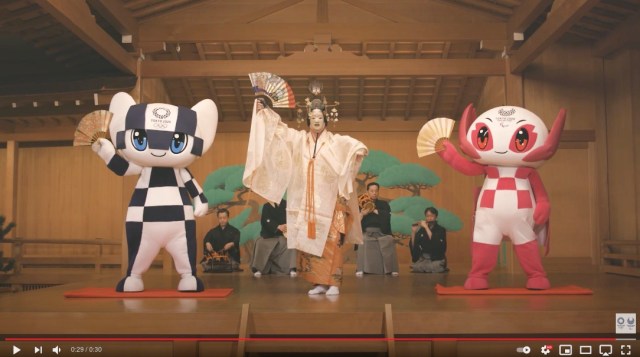
We check out the Tokyo 2020 official beat music being played at four special locations.
After a long and scandal-ridden lead-up to the Tokyo Olympics, the 2020 Games are finally underway in the capital, and even though locals aren’t able to attend any of the events in person, there’s still a sense of sporting spirit in the air.
One of the places where that spirit can be felt is at train stations along the Toei subway. Had the Olympics gone ahead as planned, these stations would’ve been bustling with local and international visitors right now, with special signs in place to help direct crowds to some of the big venues for sporting events.
While the crowds aren’t here, the signs are, and we took a trip out to see some of them, alighting first at Kudanshita Station on the Shinjuku Line, where we were met with a sign that read: “Nippon Budokan“.
▼ The red “Tokyo 2020” signs act as “sub-names” for the station during the Tokyo Olympics and Paralympics, and will be up until 30 September.
Kudanshita Station is conveniently located a short three-minute walk from the indoor arena, which plays host to the Games’ judo and karate events.
Ryogoku Station on the Oedo Line goes by the subname of “Kokugikan“, due to its proximity to Ryogoku Kokugikan, also known as The Sumo Stadium, which has been turned into a single-ring boxing hall for the Games’ boxing events.
▼ Stairs and escalators at the four stations are also decorated with 2020 signage.
Over at Kokuritsu Kyogijo Station on the Oedo Line, we have the Olympic Stadium, which plays host to the opening and closing ceremonies and the majority of the athletics events.
Kokuritsu Kyogijo Station is also convenient to the table tennis events at the Tokyo Metropolitan Gymnasium right next to the stadium.
Aoyama-itchome Station on the Oedo Line is also being recommended as a stop-off point for the Olympic Stadium, although it’s much further away from its event site compared to other stations, requiring a 16-minute walk to get to the stadium.
As the train approaches each station, announcements naming the related event venue in Japanese and English can be heard as well. At Aoyama-itchome, you can hear “Aoyama-itchome, Olympic Stadium” being read out in a politely spoken manner, and this is where we decided to step out to listen for another unusual recording as well.
The four special subway stations play a special jingle throughout the duration of the Olympics and Paralympics each time a train arrives. The new melody is a snippet from “Make The Beat!” an official theme song of the Tokyo 2020 Games, which will be played at the stations until 30 September.
▼ Listen to the jingle below:
This was the first time we’d ever heard the melody, but a quick search online revealed it to be part of the “official support beat” of the Games. The “support beat” was designed to get spectators involved in sporting events, with a special series of claps to match the melody, as demonstrated by the official mascots in this official Tokyo 2020 video below.
While the jingle is upbeat and the claps a fun way to get spectators involved, the absence of spectators at the Games, and the Tokyo train stations, now adds a tone of wistful melancholy to the arrangement. However, the organisers are encouraging people from around the world to get involved in the Make the Beat! project online, by sharing videos of themselves clapping or dancing along to the music on social media with the hashtag #2020beat.
▼ An example for inspiration.
Once you’ve filled out the consent form, your video may be played at one of the big events, so time to check out the details at the official Make The Beat! site and get clapping! Because after missing out on seeing Mario and Akira at the opening ceremony, we could all do with a little more fun at the Games!
Related: Tokyo Metropolitan Government Bureau of Transportation, Tokyo 2020 Make the Beat!
Featured image: YouTube/Tokyo 2020
Insert images © SoraNews24
● Want to hear about SoraNews24’s latest articles as soon as they’re published? Follow us on Facebook and Twitter!
[ Read in Japanese ]

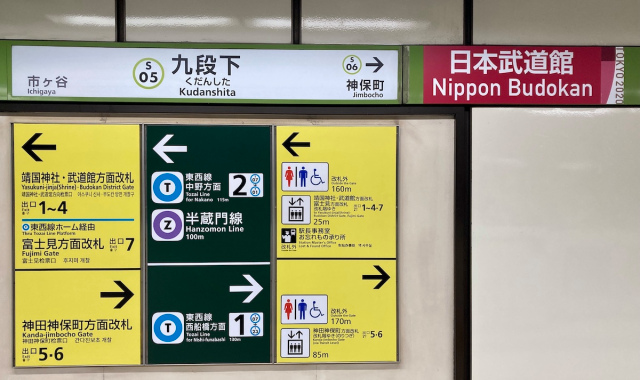
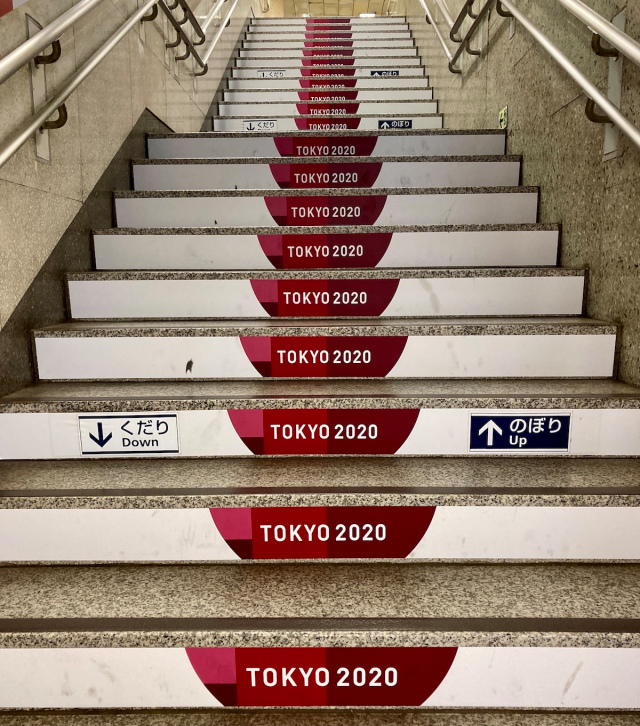
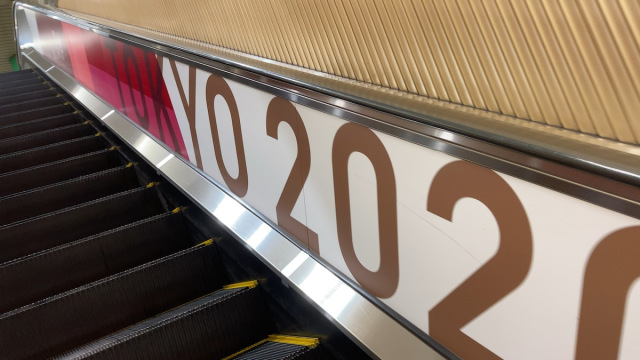
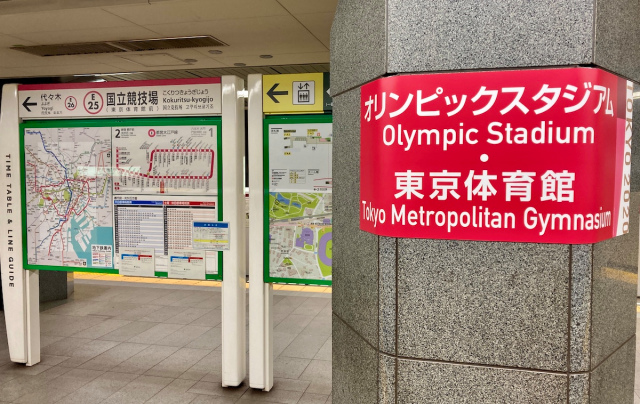
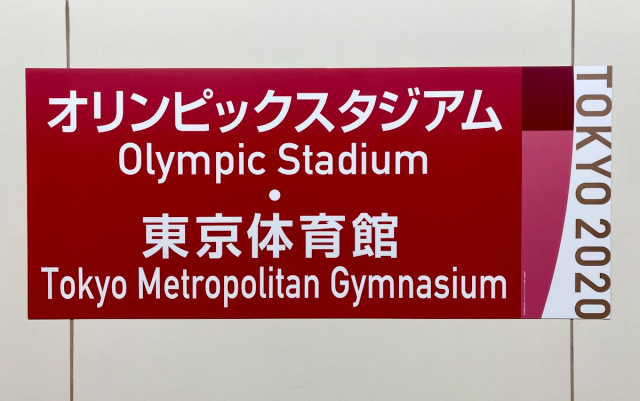
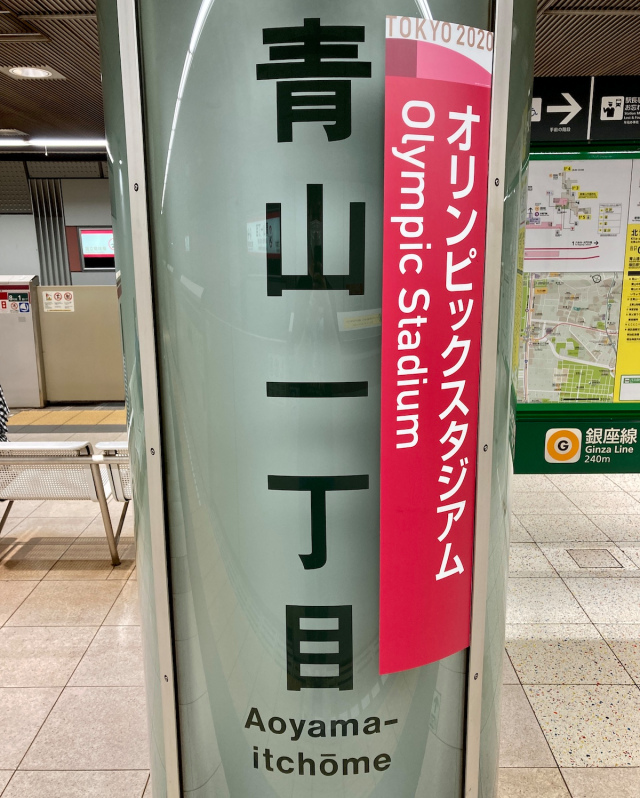

 Japan’s Harajuku Station to be rebuilt ahead of 2020 Tokyo Olympics
Japan’s Harajuku Station to be rebuilt ahead of 2020 Tokyo Olympics Taste the floor of a Japanese train station with new limited-edition chocolates from Tokyo Metro
Taste the floor of a Japanese train station with new limited-edition chocolates from Tokyo Metro Tokyo Olympics bans fans from posting videos of the Games on their social media accounts
Tokyo Olympics bans fans from posting videos of the Games on their social media accounts Tokyo Olympics to allow spectators, provided they “cheer quietly”
Tokyo Olympics to allow spectators, provided they “cheer quietly” Japan unveils beautiful new yen coins for Tokyo Olympics, needs your help picking the best design
Japan unveils beautiful new yen coins for Tokyo Olympics, needs your help picking the best design Foreigner’s request for help in Tokyo makes us sad for the state of society
Foreigner’s request for help in Tokyo makes us sad for the state of society Japanese city loses residents’ personal data, which was on paper being transported on a windy day
Japanese city loses residents’ personal data, which was on paper being transported on a windy day Smash Bros. director Sakurai stabs Kirby in the face, has delicious justification for it
Smash Bros. director Sakurai stabs Kirby in the face, has delicious justification for it Seaside scenery, history, and so many desserts on Yokohama’s Akai Kutsu【Japan Loop Buses】
Seaside scenery, history, and so many desserts on Yokohama’s Akai Kutsu【Japan Loop Buses】 Should you add tartar sauce to Japanese curry rice? CoCo Ichi makes diners an unusual offer
Should you add tartar sauce to Japanese curry rice? CoCo Ichi makes diners an unusual offer Red light district sushi restaurant in Tokyo shows us just how wrong we were about it
Red light district sushi restaurant in Tokyo shows us just how wrong we were about it Princesses, fruits, and blacksmiths: Study reveals the 30 most unusual family names in Japan
Princesses, fruits, and blacksmiths: Study reveals the 30 most unusual family names in Japan Ghibli Park now selling “Grilled Frogs” from food cart in Valley of Witches
Ghibli Park now selling “Grilled Frogs” from food cart in Valley of Witches Hamburg and Hamburg Shibuya: A Japanese restaurant you need to put on your Tokyo itinerary
Hamburg and Hamburg Shibuya: A Japanese restaurant you need to put on your Tokyo itinerary Harajuku Station’s beautiful old wooden building is set to return, with a new complex around it
Harajuku Station’s beautiful old wooden building is set to return, with a new complex around it McDonald’s new Happy Meals offer up cute and practical Sanrio lifestyle goods
McDonald’s new Happy Meals offer up cute and practical Sanrio lifestyle goods Japanese ramen restaurants under pressure from new yen banknotes
Japanese ramen restaurants under pressure from new yen banknotes French Fries Bread in Tokyo’s Shibuya becomes a hit on social media
French Fries Bread in Tokyo’s Shibuya becomes a hit on social media Studio Ghibli releases new action figures featuring Nausicaä of the Valley of the Wind characters
Studio Ghibli releases new action figures featuring Nausicaä of the Valley of the Wind characters New private rooms on Tokaido Shinkansen change the way we travel from Tokyo to Kyoto
New private rooms on Tokaido Shinkansen change the way we travel from Tokyo to Kyoto Tokyo Tsukiji fish market site to be redeveloped with 50,000-seat stadium, hotel, shopping center
Tokyo Tsukiji fish market site to be redeveloped with 50,000-seat stadium, hotel, shopping center Beautiful Ghibli sealing wax kits let you create accessories and elegant letter decorations【Pics】
Beautiful Ghibli sealing wax kits let you create accessories and elegant letter decorations【Pics】 Studio Ghibli releases Kiki’s Delivery Service chocolate cake pouches in Japan
Studio Ghibli releases Kiki’s Delivery Service chocolate cake pouches in Japan New definition of “Japanese whiskey” goes into effect to prevent fakes from fooling overseas buyers
New definition of “Japanese whiskey” goes into effect to prevent fakes from fooling overseas buyers Our Japanese reporter visits Costco in the U.S., finds super American and very Japanese things
Our Japanese reporter visits Costco in the U.S., finds super American and very Japanese things All-you-can-drink Starbucks and amazing views part of Tokyo’s new 170 meter-high sky lounge
All-you-can-drink Starbucks and amazing views part of Tokyo’s new 170 meter-high sky lounge More foreign tourists than ever before in history visited Japan last month
More foreign tourists than ever before in history visited Japan last month New Pokémon cakes let you eat your way through Pikachu and all the Eevee evolutions
New Pokémon cakes let you eat your way through Pikachu and all the Eevee evolutions Disney princesses get official manga makeovers for Manga Princess Cafe opening in Tokyo
Disney princesses get official manga makeovers for Manga Princess Cafe opening in Tokyo Sales of Japan’s most convenient train ticket/shopping payment cards suspended indefinitely
Sales of Japan’s most convenient train ticket/shopping payment cards suspended indefinitely Sold-out Studio Ghibli desktop humidifiers are back so Totoro can help you through the dry season
Sold-out Studio Ghibli desktop humidifiers are back so Totoro can help you through the dry season Japanese government to make first change to romanization spelling rules since the 1950s
Japanese government to make first change to romanization spelling rules since the 1950s Ghibli founders Toshio Suzuki and Hayao Miyazaki contribute to Japanese whisky Totoro label design
Ghibli founders Toshio Suzuki and Hayao Miyazaki contribute to Japanese whisky Totoro label design Doraemon found buried at sea as scene from 1993 anime becomes real life【Photos】
Doraemon found buried at sea as scene from 1993 anime becomes real life【Photos】 Tokyo’s most famous Starbucks is closed
Tokyo’s most famous Starbucks is closed One Piece characters’ nationalities revealed, but fans have mixed opinions
One Piece characters’ nationalities revealed, but fans have mixed opinions We asked a Uniqlo employee what four things we should buy and their suggestions didn’t disappoint
We asked a Uniqlo employee what four things we should buy and their suggestions didn’t disappoint Tokyo Olympics opening ceremony preliminary ticket prices announced, wallets cry across Japan
Tokyo Olympics opening ceremony preliminary ticket prices announced, wallets cry across Japan Japanese Internet reacts in dismay to official Olympics Twitter quietly changing its header
Japanese Internet reacts in dismay to official Olympics Twitter quietly changing its header Tokyo Olympics will not allow spectators from overseas
Tokyo Olympics will not allow spectators from overseas Blue Impulse’s cockpit version video gives us an intimate look inside an aerobatic plane 【Video】
Blue Impulse’s cockpit version video gives us an intimate look inside an aerobatic plane 【Video】 Tokyo adding free Wi-Fi to 143 subway stations for foreign travelers
Tokyo adding free Wi-Fi to 143 subway stations for foreign travelers Looks like it’s time to say good-bye, and maybe good riddance, to the 2020 Tokyo Olympics logo
Looks like it’s time to say good-bye, and maybe good riddance, to the 2020 Tokyo Olympics logo Studio Ghibli releases its first-ever train jingles, to be played at one special Japanese station
Studio Ghibli releases its first-ever train jingles, to be played at one special Japanese station Pikachu and Super Mario left out of lineup of official spokescharacters for Tokyo Olympics
Pikachu and Super Mario left out of lineup of official spokescharacters for Tokyo Olympics Tokyo Olympics and Paralympics mascot finalists unveiled【Pics & Video】
Tokyo Olympics and Paralympics mascot finalists unveiled【Pics & Video】 Tokyo Olympics WILL allow you to share photos you take at the Games on social media
Tokyo Olympics WILL allow you to share photos you take at the Games on social media Advice for Tokyo 2020 Olympics volunteers: Dress like a Japanese ninja
Advice for Tokyo 2020 Olympics volunteers: Dress like a Japanese ninja Japan ministry urges universities to adjust curriculum to accommodate student Olympic volunteers
Japan ministry urges universities to adjust curriculum to accommodate student Olympic volunteers Star Wars and Darth Vader theme melodies now being played at Tokyo train stations 【Video】
Star Wars and Darth Vader theme melodies now being played at Tokyo train stations 【Video】 JR East to introduce numbering system at all stations in Tokyo
JR East to introduce numbering system at all stations in Tokyo Shibuya Station 2019: one step closer to the Neo-Tokyo of our dreams
Shibuya Station 2019: one step closer to the Neo-Tokyo of our dreams Tokyo Olympics organizers offer to pay volunteers 125 yen 【US$1.13】 an hour, critics unimpressed
Tokyo Olympics organizers offer to pay volunteers 125 yen 【US$1.13】 an hour, critics unimpressed
Leave a Reply